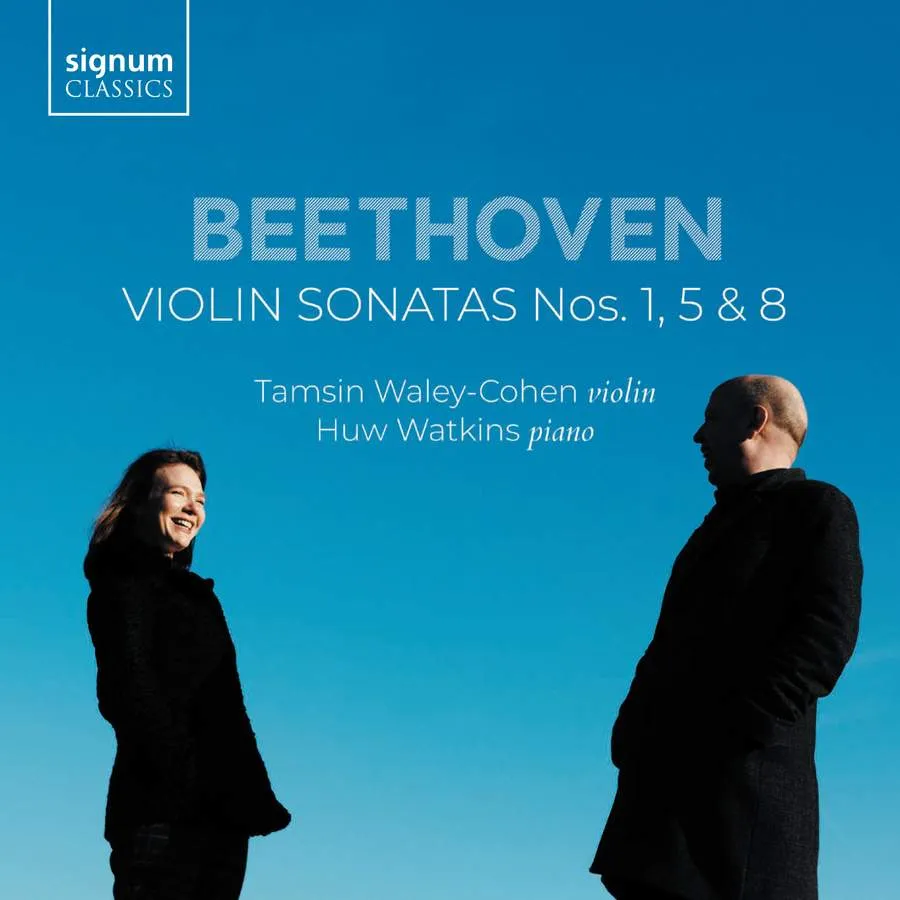
Beethoven Violin Sonata No. 1 in D major, Op. 12 No. 1; Violin Sonata No. 5 in F major, Op. 24 'Spring'; Violin Sonata No. 8 in G major, Op. 30 No. 3 Tamsin Waley-Cohen (violin), Huw Watkins (piano) Signum Classics SIGCD618 63:34 mins
Listening to these captivating performances reminded me what an exhilarating time this is for CD collectors. Many players are now so attuned to the bracingly wide range of interpretative possibilities available, that it has (thankfully) become virtually impossible to define what is ‘mainstream’.
The inspired duo of Tamsin Waley-Cohen and Huw Watkins also take absolutely nothing for granted as they launch into the first of Beethoven’s ten violin sonatas with a joyous sense of fresh discovery. They go way beyond generic posturing to give us – especially in the dancing finale, with its syncopated, madcap leap of a tenth – a sense of unbridled enjoyment, so real it feels you could almost reach out and touch it. Neither player ‘dominates’ in the old-fashioned sense of ‘give-and-take’, but rather they respond organically to the moment, creating a dazzling array of fluctuating internal balances. In contrast to the all-conquering violin image that was once part-and-parcel of performing this music, Waley-Cohen subtly shades her sound (both dynamically and tonally), enabling us to relish fully Beethoven’s exuberant creative imagination.
In the ‘Spring’ Sonata (No. 5), the two instruments’ contrasted soundworlds (something about which Beethoven despaired) become a vital part of the musical landscape, with Watkins producing a velvety cantabile (where appropriate) and Waley-Cohen scaling her sound down to a shimmering, lithe, sinewy purity. Both here and in the predominately sunny G major sonata (No. 8), Watkins uses Beethoven’s often lively left-hand figurations to help propel the music forwards with exhilarating results, captured in luminous sound by Nicholas Parker, Mike Hatch and George Collins. Richard Bratby’s lucidly authoritative annotations provide a sparkling match for the performances themselves.
Julian Haylock